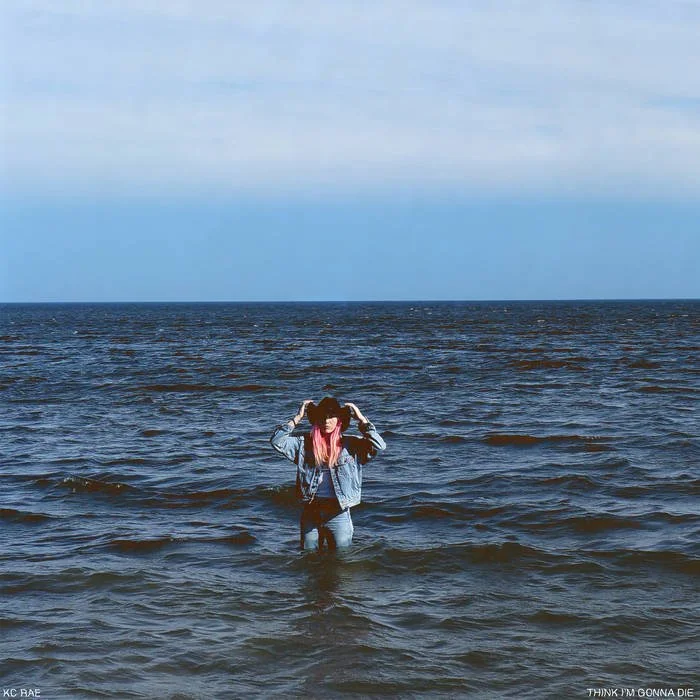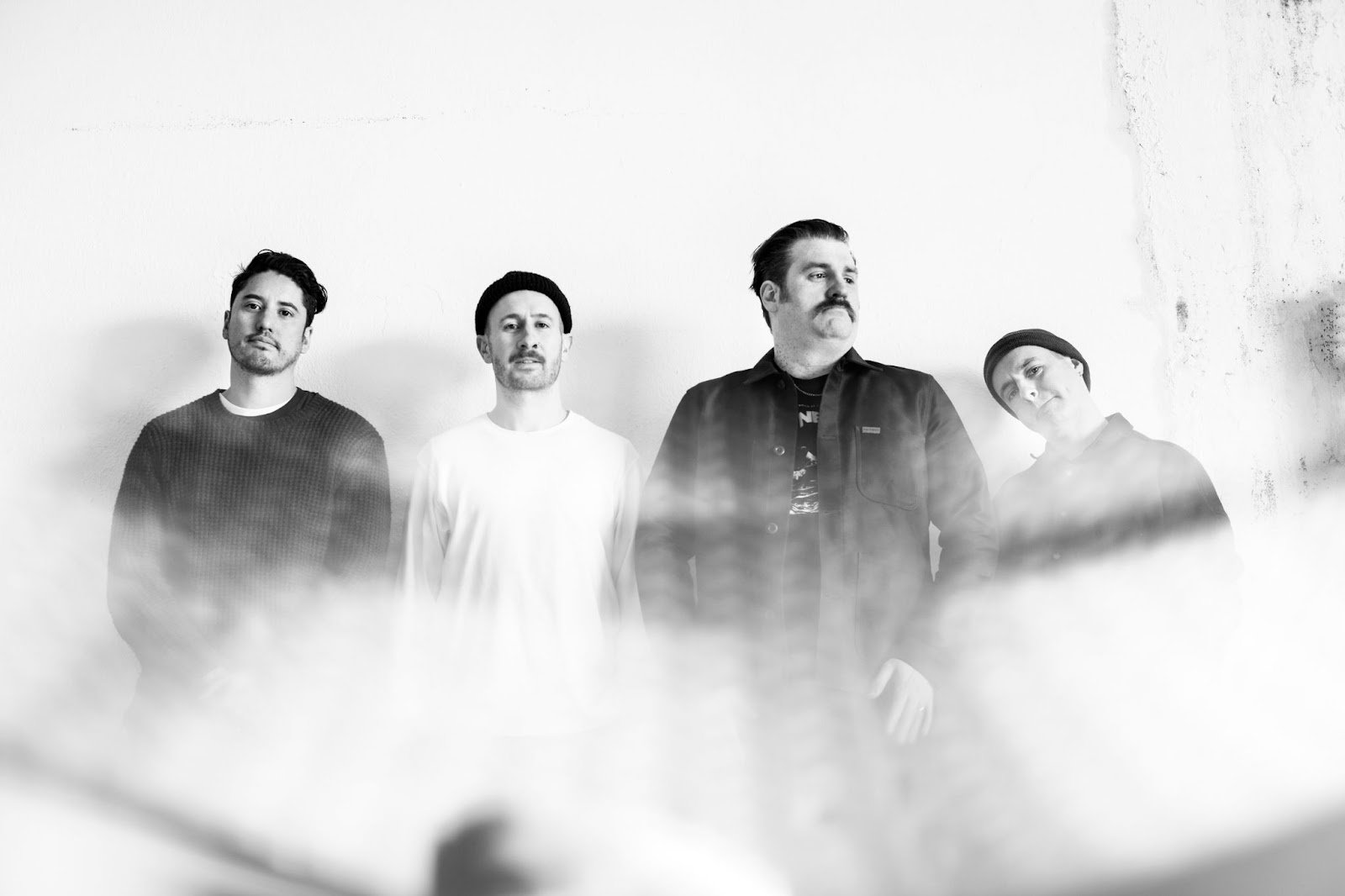Only Twin - ‘It Feels Nice to Burn’ review
Only Twin by Samantha Dutton
Thomas Dutton, the creative force behind Only Twin, has once again captured the essence of his personal evolution with his latest album, It Feels Nice to Burn. Known for his work with synth-pop group Cardiknox and indie emo band Forgive Durden, Dutton’s sophomore effort as Only Twin finds a perfect balance between left-of-center indie pop and dreamy rock.
As one of my favorite artists, I’ve avidly followed Dutton’s music career for the better part of two decades. My fellow fans are sure to feel thankful for having any new music from Dutton, and if they’re anything like me, they’ll be so happy to be let into his personal story of falling in love.
It Feels Nice to Burn, which follows his 2021 debut Rare Works, showcases growth both as an artist and an individual. Now married and a new father, Dutton explores themes of love, rebirth, and the beautiful tension within seemingly idyllic moments.
The album opens with "In Bloom," a track that vividly depicts Dutton’s lyrical prowess and knack for creating lush, emotive soundscapes. The song’s imagery of bioluminescent waves and heartfelt declarations of love set the tone for the rest of the album. “With you, I see colors I never knew / In bloom,” he sings, capturing the intoxicating freshness of new love. The combination of shimmering synths and tender vocals envelops the listener, making it easy to get lost in the dreamy ambiance. The themes of new beginnings and profound connection are palpable as Dutton sings, "My heart's in bloom when I'm with you," evoking the sheer beauty of a flourishing relationship.
As the album progresses, the raw vulnerability of "Thirty Minutes" takes center stage. Dutton captures the thrill and slight anxiety of new love with lines like, "She can hurt me now," and recounts a socially distant sushi date, “debating when the world is gonna end.” The song’s chorus, "We let the feeling pass for thirty minutes," encapsulates the fleeting yet intense moments that define the early stages of a relationship, highlighting the delicate balance between joy and the fear of vulnerability.
From the vulnerability of "Thirty Minutes," we transition seamlessly into "Pool Day," where Dutton explores the tension of savoring perfect moments without overthinking. He sings, “This was supposed to be fun / Don’t freak out / Just pull into the driveway,” capturing the relatable experience of trying to stay present and enjoy the moment despite underlying anxieties. The lyrics paint a picture of carefree days and playful intimacy, enhanced by the vibrant imagery.
Then comes "No One's Lived There for Years," evoking profound loneliness. The soundscape creates an image of someone alone in a dark, empty home, feeling the inescapable weight of solitude. Dutton sings, "There's a room for rent in the empty space in my chest," metaphorically describing emotional vacancy. The haunting melody and reflective lyrics pull the listener into this desolate place.
But just as the loneliness starts to feel overwhelming, the album transitions to "Give You Up," one of my favorite tracks in the collection. This song bursts forth with joy and respect for love, creating a stark contrast to its predecessor with its ‘80s-inspired synths and full-throated declarations. The lyrics, “I would dance on broken glass, if it meant I got another moment,” reflect the intensity and commitment Dutton feels for his partner. This track, reminiscent of a coming-of-age film, marks a significant shift from the heartbreak explored in Rare Works to the passionate embrace of new love.
Just yesterday, Only Twin released the music video for this track, featuring the stunning Julianne Hough working in an office and hilariously falling in love with a copy machine. This light-hearted and whimsical video perfectly captures Dutton's ability to have fun with his music creations.
"Cherry Red" features the lyric from which the album gets its title, "it feels nice to burn for someone again." This song explores the bittersweet nature of longing and love. The melody line, particularly in the bridge, builds tension as it arpeggiates up the first half of each line, releasing in the second half. Dutton’s lyrics highlight the theme of finding joy in emotional intensity, blending melancholy with a sense of fulfillment.
"Born Again" is another standout track. Sonically different from the other songs, it sounds effortless, reflecting the natural fit of true love. The song juxtaposes religious imagery with a refreshing take on the macabre, as Dutton sings, “I know God is counterfeit, there ain't nothing after this. And that's what makes it all the more sweet.” This suggests giving your all to relationships here and now. The sense of starting anew is palpable, and the chorus—“I'm really dying baby / And I’m ready to be born again, it’s true / Ready to be born with you”—captures the blend of vulnerability and hope that comes with deep love. Notably, this track is one of the few where Dutton stays in his normal register, doubling the chorus with a deep register and adding only a light falsetto in the harmony. "Born Again" feels like the most intimate, honest moment of reflection on this deeply personal record.
"Kill Some Time" offers a whimsical exploration of youthful rebellion and timeless moments. The song’s playful lyrics and upbeat tempo create a sense of carefree abandon. Dutton sings, “We’ll roll up the carpets and dance on the hardwoods / Into the darkness / Kill some time,” evoking images of spontaneous adventures and late-night escapades. The track is filled with vibrant imagery, from “jumping the turnstiles” to “skipping in the church aisles,” capturing the essence of living in the moment and finding joy in simple activities.
The song’s chorus, “Killing some time is timeless,” suggests a deeper reflection on the importance of savoring life’s fleeting moments. Dutton’s ability to blend lighthearted fun with a touch of nostalgia is evident throughout the song. The upbeat rhythm and catchy melody make it an irresistible listen, while the lyrics remind us of the value of making memories and enjoying life’s little pleasures.
We return to the lower register, as well as themes of the macabre and religious imagery, in "Japanese Wrestler" for a poignant reflection on mortality, the fleeting nature of life, and love that stretches beyond our lifetime. Dutton’s lyrics delve into themes of loss and the inevitability of death with vivid, somber imagery, painting a picture of life’s ephemeral beauty with lines like, “When your days have come and gone / I'll plant you a garden / And watch as the marigolds / Blossom from your bones.”
Musically, "Japanese Wrestler" is underscored by a melancholic melody that enhances its reflective mood. The gentle instrumentation and Dutton’s emotive vocal delivery create an intimate atmosphere. The repeated question, “Where are you now?” echoes throughout the song, emphasizes the longing and uncertainty. This juxtaposition of life and death, beauty and decay will resonate with anyone who has grappled with the impermanence of life and the looming awareness of future loss.
The album’s closing track, "Love of a Lifetime," is a tender ode to enduring love. Through warm vocals, Dutton invites listeners into an intimate space where everyday moments are cherished. The chorus reflects the cyclical nature of seasons as a metaphor for the phases of love, capturing the renewal and continuity of a lasting relationship. Lyrics like “When she looks in my eyes / I can hear the kids in the backyard,” offer a glimpse into the everyday beauty of his life, emphasizing the joy found in family and shared future dreams. This line beautifully illustrates how the love he shares with his partner permeates his thoughts, filling him with visions of their future together.
The song’s consoling guitar part and skittering drumbeat create a soothing backdrop that complements the heartfelt lyrics. Dutton’s vocal delivery, rich with emotion, underscores the sincerity of his words. The line, “Your love, it’s on and on – it’s all I'll ever need,” serves as a poignant reminder of the enduring impact of true love, making the track a fitting conclusion to the album. "Love of a Lifetime" encapsulates the essence of the album, celebrating the profound depth of long-term love, leaving listeners with a sense of warmth and contentment as the album draws to a close.
Overall, It Feels Nice to Burn is a masterful exploration of loss, love, and renewal. Dutton’s ability to blend personal anecdotes with universal themes is a stunning testament to Thomas Dutton's evolution and newfound understanding of love and life. The balance between indie pop and dreamy rock serves as a perfect backdrop for Dutton’s lyrical storytelling, weaving together intimate moments and universal experiences.
So often we listen to music and think, "I understand that emotion, I have felt that emotion, I feel represented and even validated by hearing someone else’s story and emotive experience that this musician is sharing." Listening to this album from Only Twin, there are many moments where, as a person who has fallen in love and has a life-long partner, I can identify with the experiences and feelings being told. But more than anything, I find myself so happy for this person, whom I have followed and admired, to be experiencing this season of life. It’s a weird and interesting relationship that music and openly creating affords us.
As a longtime admirer of Dutton's work, it’s heartening to see him channel his personal experiences into such a cohesive and emotionally resonant album.
It Feels Nice to Burn from Only Twin is out now via self-release and available on all good streaming platforms.


































